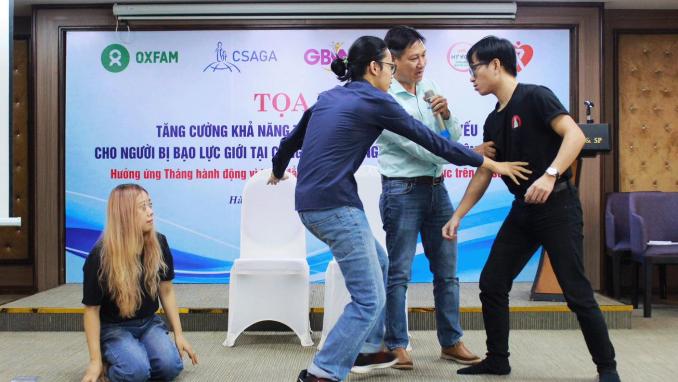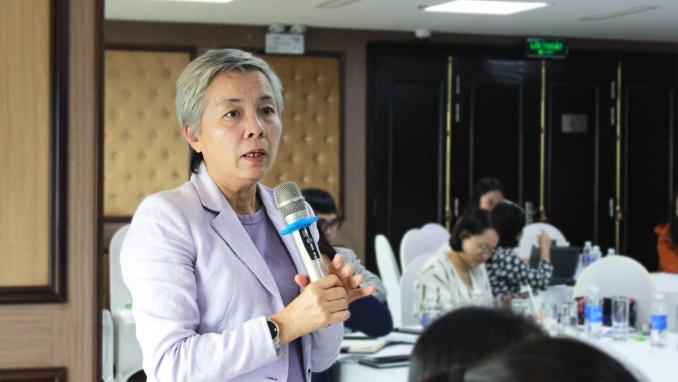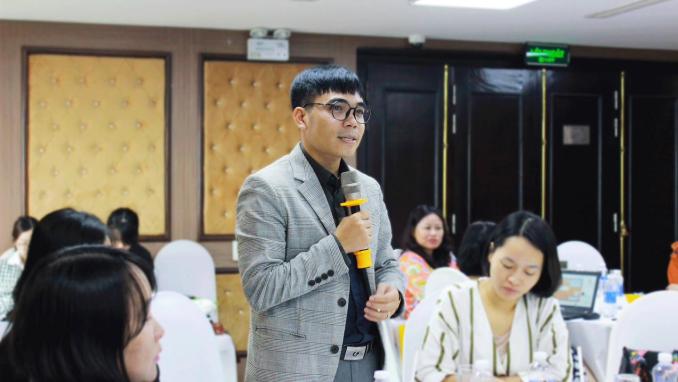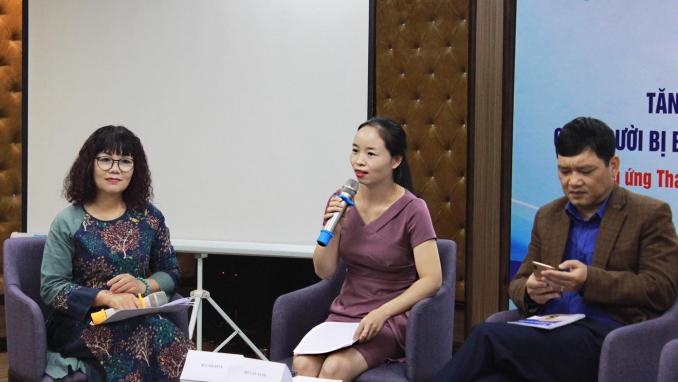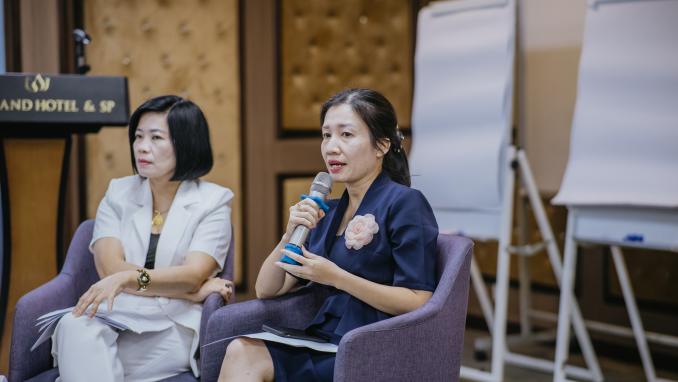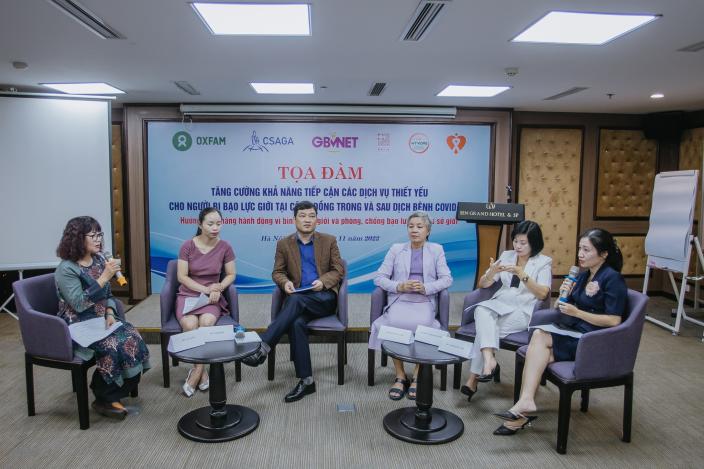
Key participants at the workshop (left to right): Ms. Dang Thi Hue, Gender Expert and Coordinator; Ms. Bui Thi Binh, Chairwoman of the Women's Union in Dong Lai Commune, Tan Lac District, Hoa Binh Province; Mr. Do Van Sanh, Head of the Department of Propaganda and Public Affairs, Hai Duong Provincial Labor Confederation; Ms. Nguyen Van Anh, Director of CSAGA; Mrs. Nguyen Thi Kim Dung, Deputy Head of the Culture Department, Son Tay Town, Hanoi; Mrs. Nguyen Thi Lien, Chairman of Maple Factory Trade Union, Hai Phong. Photo courtesy of Batik
COVID-19 exacerbates gender-based violence with over 1 in 3 Vietnamese women (37.8%) experiencing violence during the pandemic.
Amidst social distancing, a distress call received by the Center for Studies and Applied Sciences in Gender-Family-Women and Adolescents (CSAGA) captures the severity: "I'd rather risk contracting COVID-19 than stay home and endure certain death from my husband's abuse."
Unfortunately, 90% of victims choose silence, finding it harder to access support due to pandemic restrictions.
In response, Oxfam and CSAGA have developed a new model to address gender-based violence during and beyond the pandemic. This intervention prioritizes enhancing grassroots support services, providing remote assistance through helplines and online platforms, and coordinating resources and trusted referrals.
Experts at the workshop on "Enhancing support services for gender-based violence survivors during and after COVID-19" on November 25 applauded the model's approach. The model has successfully raised awareness and empowered women to protect themselves while actively seeking external support.
Ensuring effective coordination between trade unions, businesses, authorities, and the community is crucial. Measures such as establishing safe boarding houses for migrant workers and organizing Family Law training programs for workers have been identified as essential.
----
The seminar was jointly organized by CSAGA Center, Gender-based Violence Prevention Network (GBVNet), Oxfam in Vietnam, and Batik International in Vietnam.
The data cited in this article is sourced from the survey conducted by the Ministry of Labor, War Invalids and Social Affairs (2020) and the report by the Institute of Preventive Medicine and Public Health - Hanoi Medical University (2020).
